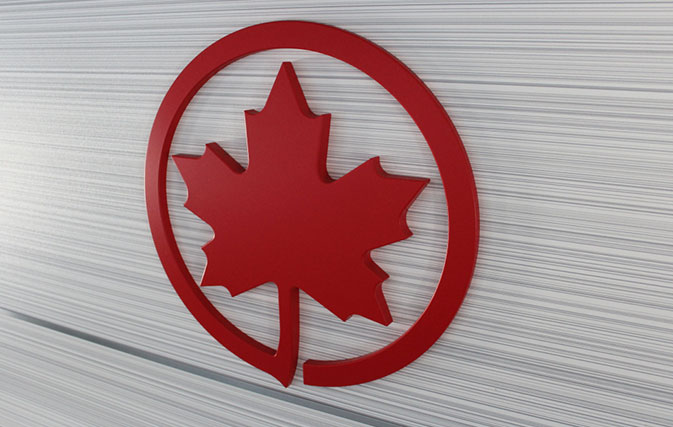MONTREAL — Air Canada has reported a $685 million loss for the third quarter of 2020, with passenger numbers down 88% year over year as the airline continues to feel the devastating impact from the COVID-19 pandemic.
The airline’s net cash burn rate topped $818 million in Q3, or approximately $9 million per day. That’s actually better than the expected rate of $1.35 billion – $1.6 billion for the quarter, or $15 million – $17 million per day.
Yesterday Transport Minister Marc Garneau announced that the federal government is moving forward with financial assistance discussions with Canada’s airlines.
The news came more than four months after Air Canada announced the closure of operations at eight airports and the indefinite cancellation of 30 domestic routes. Other cancellations in the wake of the pandemic include Transat’s suspension of its USA & South program out of Western Canada for 2020-2021, and WestJet’s Atlantic Canada cuts, slashing its capacity in that region by 80%.
Today Air Canada said it has a further 95 domestic, U.S. transborder and international route suspensions, and nine Canadian station closures, in jeopardy as a result of travel restrictions and sharply decreased demand.
In light of Garneau’s announcement, Air Canada will now wait on this week’s government talks before announcing any more route suspensions or station closures, says President and CEO, Calin Rovinescu.
“At the end of June, we made the difficult decision to indefinitely suspend 30 domestic routes and close eight regional stations and our Network Planning team has identified up to a further 95 domestic, U.S. transborder and international route suspensions and nine Canadian station closures required to preserve liquidity, cut costs and reduce capital expenditures as we prepare for a smaller footprint expected to last several years,” said Rovinescu.
“Given the public statements made by the Honourable Marc Garneau, Canada’s Minister of Transport, on November 8, 2020 regarding commencing immediate discussions with major airlines on aviation industry sector-specific support, we are deferring the additional route suspensions and station closures pending the progress of those discussions.”
Q3 TYPICALLY AIR CANADA’S STRONGEST QUARTER
Total revenues of $757 million in the third quarter of 2020 declined $4.773 billion or 86 per cent from the third quarter of 2019.
Since COVID-19 was declared a pandemic in March, Air Canada has been forced to eliminate 20,000 jobs, after having created 10,000 over the previous five years. The pandemic and the travel restrictions have also reversed 10 years of profitable network expansion by reducing capacity by more than 80% in the third quarter.
“Today’s results reflect COVID-19’s unprecedented impact on our industry globally and on Air Canada in what has historically been our most productive and profitable quarter,” says Rovinescu.
In summer 2020 Air Canada and the GTAA launched a new COVID-19 testing project at Pearson Airport. Says Rovinescu: “Amongst the various science-based measures we have been advocating, testing at airports is by far the most significant, as demonstrated by the McMaster HealthLabs’ study of international travellers arriving at Toronto Pearson. It was reported to be the largest-ever study of its kind and preliminary results clearly confirm safe alternatives exist to a mandatory 14-day quarantine, which is both stifling demand and frustrating travellers who are willing to be tested.”
CAPACITY, THE TRANSAT DEAL & AEROPLAN
Air Canada reduced capacity by 92% in Q2 and 81.7% in Q3 compared to the same quarters in 2019, and plans to reduce Q4 capacity by about 75%.
“We have taken several measures to carefully rationalize our existing fleet: We are accelerating the retirement of 79 mainline and Rouge aircraft. We are deferring delivery of new Boeing 737-8 and Airbus A220 aircraft scheduled for delivery in 2021 and 2022 and cancelling 10 Boeing 737-8s and 12 Airbus A220s, representing about 40% of the remaining scheduled deliveries,” says Rovinescu.
In addition to the mitigation steps the airline has taken, Rovinescu says Air Canada is also preparing for the post-COVID recovery. “Along with other ongoing initiatives, this month we launched the new Aeroplan, expected to be one of the best travel loyalty programs available. Our simplified and restructured aircraft fleet will be highly fuel efficient and well-configured for our key routes. Our proposed acquisition of Transat A.T. Inc. will enable us to better compete with global competitors in a drastically altered global airline market.”
Most importantly, he says, Air Canada’s culture remains strong. “We have employees who remain highly motivated and intensely focused on safely transporting our customers and I thank them for their commitment and hard work,” said Rovinescu.

